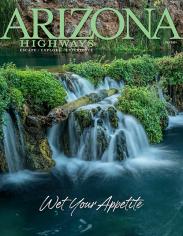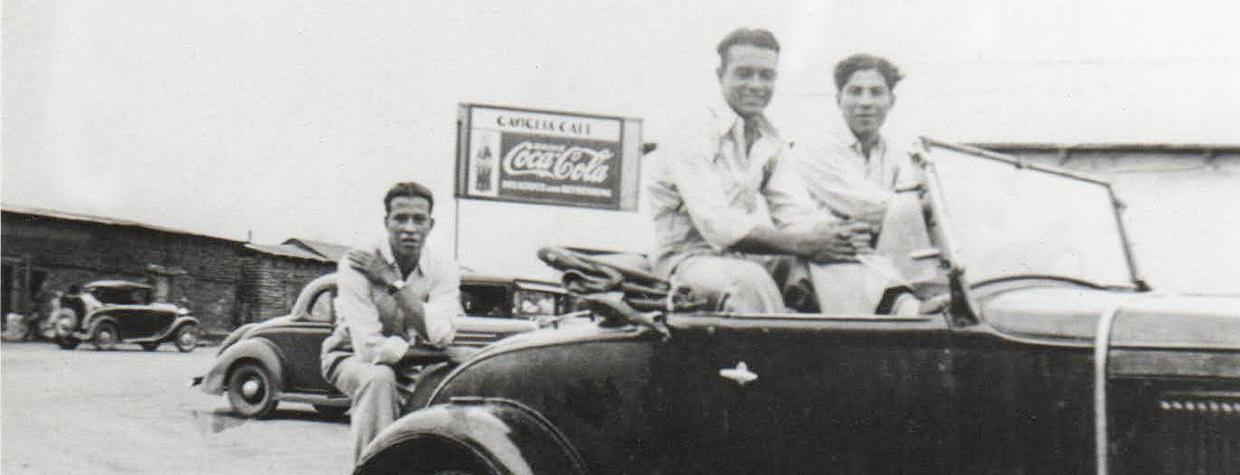In the early 1930s, Angelo Caviglia began construction on a 2,000-square-foot adobe building with an adjacent 700-square-foot livery stable. His goal? To create a gathering place for residents of Arivaca and the nearby community of Ruby, which was experiencing a boom thanks to the nearby Montana Mine.
Caviglia Café — named in honor of Caviglia and his parents, Bernardo and Pastora, who homesteaded in Arivaca in 1887 — opened on June 5, 1934. The dance hall, saloon and café quickly became popular among cowboys, their rancher bosses and miners. “The mining heyday was happening,” says Emily Bishton, who owns the current iteration of the property, Arivaca Dancehall, with her husband, Conrad Uno. “Ruby was full of people. It was a good deal to come to Arivaca and have a party.”
But when the mine closed in 1940, much of Caviglia Café’s business dried up, too. Caviglia closed his doors and moved to Tucson with his family. What happened next at the café is unclear, but some local lore indicates it operated as a house of ill repute until Hack and Emma Mae Townsend purchased it and converted it into a residence. There, they raised their daughter, Hacklene, while opening a general store, a gas station and the El Tejano Café just across the street.
The Townsends lived at the corner of Fifth Street and Ruby Road for 50 years. Emma Mae was the last teacher at the Arivaca Schoolhouse, which closed in 1953, and after Hack’s death in 1990, she worked with the community to open the Aribac Museum inside the family’s former gas station building.
The former dance hall became a rental property after Emma Mae’s death in 1994, then sat vacant for several years. In 2016, architect Nell Smets bought it and began an extensive renovation. When Bishton and Uno took over in 2021, they continued that work. “We’re from Seattle, but we’ve been coming to Arivaca since 1993 to hike and bird-watch,” Bishton says. “Every time we drove by the building … there was just something about it.”
Bishton, a former restoration project manager, and Uno, a former sound engineer and producer, had a new mission: to preserve the building as a piece of Arivaca history. “After we bought it, we had a lot of open houses with the community to find out what people thought was missing,” Bishton says, and a music venue was the prevailing thought.
While the venue doesn’t serve food or drinks, it has attracted a slew of beloved Arizona bands, including Pick & Holler, the Sunpunchers and the Joe Baker Trio. “We wanted to bring music here that wouldn’t be here otherwise,” Bishton says. “That’s been our guiding light.”

